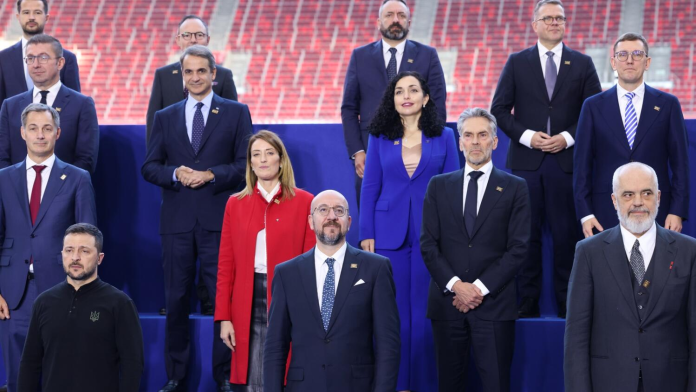The election of Donald Trump as US president and the collapse of the German government promise big changes in Europe’s economic policy and political agenda.
German President Frank-Walter Steinmeier approved the holding of an extraordinary early election in Germany on 23 February, announced by Chancellor Olaf Scholz.
According to opinion polls, the main candidate for the post of the future chancellor is conservative leader Friedrich Merz, who promised to send Taurus missiles to Ukraine after he came to power if Russia refuses to stop hostilities. His strong statements are presumably linked to Trump’s victory in the US election, as the Republican leader promised to end the war in Ukraine and stop helping Europe.
However, Trump did not specify how he would achieve an end to the military conflict, whereas many analysts argue that Ukraine will have to sacrifice some of its territories and agree to unfavourable terms for the sake of peace.
While the US economy is experiencing relative stability, Europe’s recovery has slowed, especially in Germany. Trump stated that his administration would impose tariffs of 20% on European goods and even higher duties on imports from China, which is actively penetrating global markets. Economic experts warned of a possible recession in Germany amid a prolonged crisis.
Trump also declared that he had no intention of defending NATO members in the event of an escalation of the war in Ukraine, as Alliance members spent far less on defence than the US. Thus, Trump’s re-election may force European politicians to shift in favour of further militarisation.
Surge of migrants
Moreover, Europe was overwhelmed by the migration crisis. In an attempt to address the issue, the administration of Italian Prime Minister Giorgia Meloni negotiated with Albania to process the refugees. However, Italian judges ruled that seven people detained at a migration centre in Albania must be transferred to Italy, another blow to the controversial agreement, according to The Guardian.
The Italian judges argued that all should be returned to their “safe” countries of residence, Egypt and Bangladesh. Monday’s ruling was the second time the judges ordered people from a migration centre in Albania to be returned to Italy. It has further raised questions about EU plans to set up migrant processing centres outside the bloc.
Meanwhile, Poland, the next EU Presidency from January 2025, is also facing an influx of migrants. More than two thousand refugees from Africa and the Middle East crowded in front of Polish fences on the border with Belarus, Polish media reported. The migrants tried to break through the barbed wire fence, but they were stopped by the Polish police and army.
Belarus also acknowledged the difficult situation on the border, but denied Warsaw’s accusations of cutting off humanitarian aid and escalating the migration crisis. Minsk said that all refugees flew into the country on tourist visas, which means that they are in the country legally and cannot be expelled.
German Interior Minister Nancy Faeser offered Warsaw assistance in border protection, while the EU threatened Belarus with new sanctions in response to the situation on the border. Brussels has reportedly already stopped the simplification of visa regulations for Belarusian officials.
Following Poland, Lithuania reported about the challenges at the border. In response to the escalation of the migrant crisis, the head of the EU foreign policy service, Josep Borrell, announced a trip to the countries, from where migrants go to Europe, to persuade local authorities to address the issue and stem the flow of illegal immigrants.
Political, economic and migration upheavals in Europe, as well as a possible radical change of foreign policy course in the United States will definitely influence the current agenda, including the wars in Gaza and Ukraine. Meanwhile, military experts call for attention to the growing militarisation of Europe, as the uncontrolled build-up of countries’ defence capabilities may sooner or later lead to social and political tensions.
